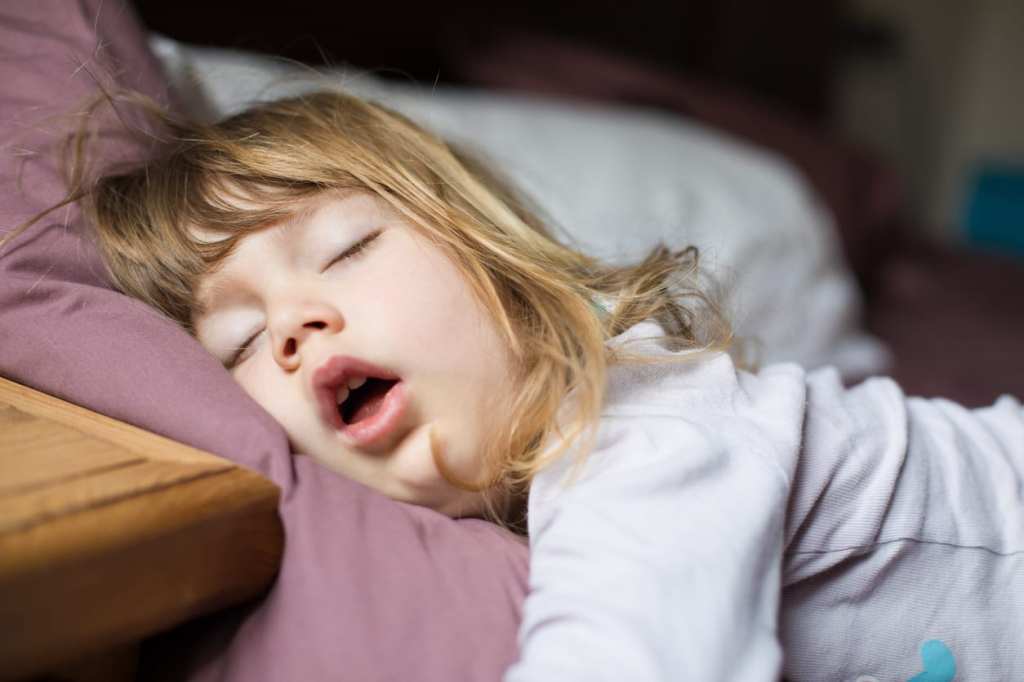Mouth breathing has been a joke for a long time – the funny bit being that people who never learned to breathe out of their noses are odd – and it turns out that there’s actually some science to back that up.
So, if your children spend more time with their mouths open than closed, you might want to start thinking of it as a problem you want to address, rather than no big deal.
In fact, Dr. Anil Rama has some dire warnings about letting mouth breathing go on unchecked.
https://www.instagram.com/p/B0yn-9zAX3P/
“Mouth breathing, especially occurring at a young age, changes the development of a person’s face. It makes their face long, chin recessed, nose drop, nostrils flare, teeth crooked, and smile gummy. It also leads to cavities, bad breath, bad sleep, and a miserable personality.”
Well, okay then.
But while it might seem like Rama is being overly harsh, there is evidence – lots of it – to suggest that kids who breath through their mouths most of the time are more likely to struggle in school, cry at night, grow at a slower rate, be moody, and even have larger tonsils than kids who breathe out of their nose.
https://www.instagram.com/p/B0wvZ5Rgo9T/
As adults, those kids are prone to fatigue, brain fog, and, unfortunately, having a different-looking face.
Basically, using the term “mouth breather” to say that someone seems a bit “off” is accurate (if unkind).
The reason? Breathing through your nose triggers paranasal sinuses that produce nitric oxide, facilitating oxygen circulation throughout the body, helping the lungs absorb oxygen, relaxing muscles, and allowing blood vessels to dilate.
It also has anti-fungal, antiviral, anti-parasitic, and antibacterial properties that boost your immune system and help fight off infections, says Rama.
https://www.instagram.com/p/B0tMdm1g9Tl/
“Nose breathing is important for cleaning, humidifying, and processing the air for the lungs. It also directly enhances sleep and regulates breathing which helps one remain calm. A lack of nose breathing over time can take a tremendous toll on a person’s mood and mental health….Mouth breathers in general are more irritable, angry, lack patience, are stressed out, forgetful, sleepy, fatigued, and not as happy as they could be.”
If you’re concerned for yourself or a child in your life, talk to a doctor – mouth breathing could be triggered by asthma, allergies, and excessive thumb-sucking and create symptoms like poor behavior, dental issues, lisping, and hoarseness.
Just think about how poorly you feel when you’re struggling with a cold and are unable to breathe through your nose for a day or two – how so much of your life, from sleep to sanity, seems affected. Well, experts attribute that to the fact that you’re being forced to breathe out of your mouth, not the illness at all.
https://www.instagram.com/p/B0pRqtzA8df/
Rama recommends jaw-strengthening exercises for adults, and, for kids, catching mouth breathing early and reminding them often to close their mouths. Correcting the behavior is crucial; otherwise, mouth breathing children are sending their bodies a message that something is physically wrong, which is part of what ends up altering development.
“The body is responding and adapting normally to what is an abnormal act of mouth breathing. The result is a deranged and unhealthy body and mind.”
She’s making no bones about it – this is an issue you want to take seriously, because your kids’ happiness and health as an adult might depend on it.






